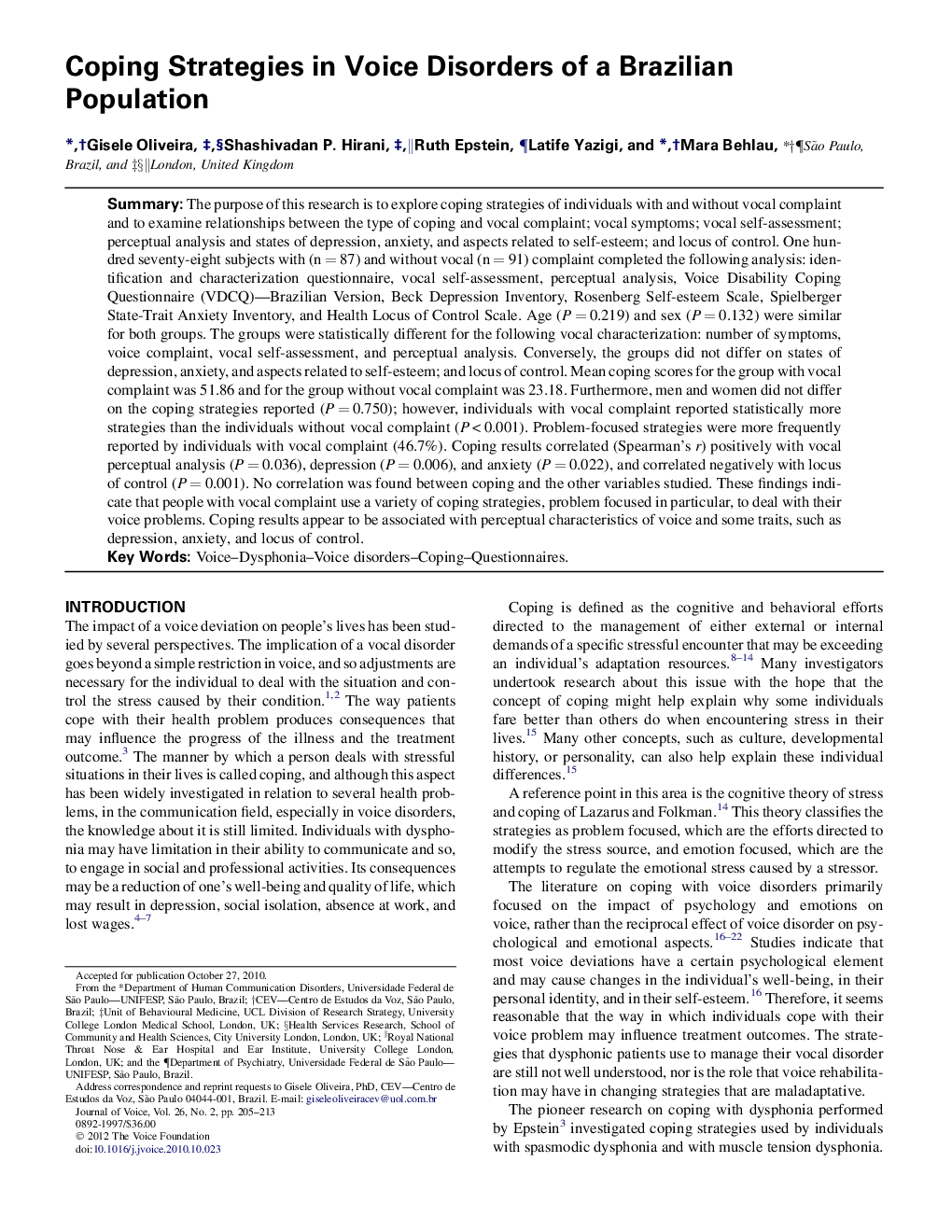| کد مقاله | کد نشریه | سال انتشار | مقاله انگلیسی | نسخه تمام متن |
|---|---|---|---|---|
| 1102270 | 953595 | 2012 | 9 صفحه PDF | دانلود رایگان |

SummaryThe purpose of this research is to explore coping strategies of individuals with and without vocal complaint and to examine relationships between the type of coping and vocal complaint; vocal symptoms; vocal self-assessment; perceptual analysis and states of depression, anxiety, and aspects related to self-esteem; and locus of control. One hundred seventy-eight subjects with (n = 87) and without vocal (n = 91) complaint completed the following analysis: identification and characterization questionnaire, vocal self-assessment, perceptual analysis, Voice Disability Coping Questionnaire (VDCQ)—Brazilian Version, Beck Depression Inventory, Rosenberg Self-esteem Scale, Spielberger State-Trait Anxiety Inventory, and Health Locus of Control Scale. Age (P = 0.219) and sex (P = 0.132) were similar for both groups. The groups were statistically different for the following vocal characterization: number of symptoms, voice complaint, vocal self-assessment, and perceptual analysis. Conversely, the groups did not differ on states of depression, anxiety, and aspects related to self-esteem; and locus of control. Mean coping scores for the group with vocal complaint was 51.86 and for the group without vocal complaint was 23.18. Furthermore, men and women did not differ on the coping strategies reported (P = 0.750); however, individuals with vocal complaint reported statistically more strategies than the individuals without vocal complaint (P < 0.001). Problem-focused strategies were more frequently reported by individuals with vocal complaint (46.7%). Coping results correlated (Spearman’s r) positively with vocal perceptual analysis (P = 0.036), depression (P = 0.006), and anxiety (P = 0.022), and correlated negatively with locus of control (P = 0.001). No correlation was found between coping and the other variables studied. These findings indicate that people with vocal complaint use a variety of coping strategies, problem focused in particular, to deal with their voice problems. Coping results appear to be associated with perceptual characteristics of voice and some traits, such as depression, anxiety, and locus of control.
Journal: Journal of Voice - Volume 26, Issue 2, March 2012, Pages 205–213